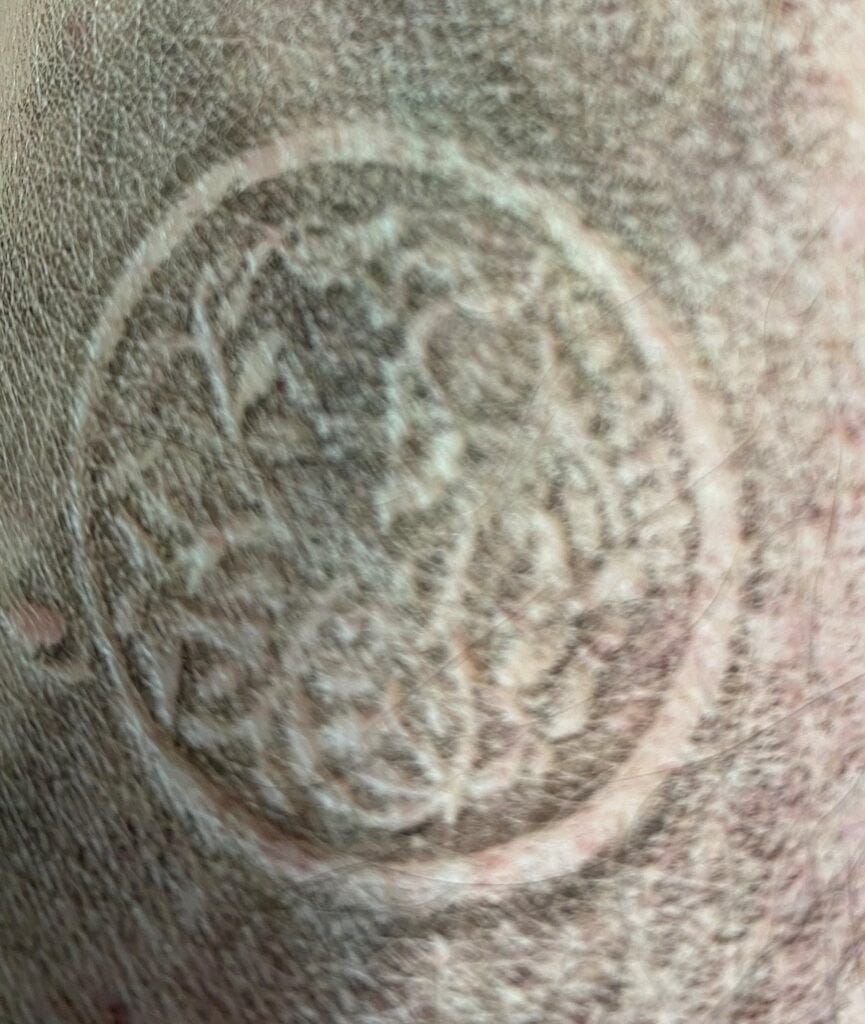Living with research envy
Ancient spin-doctors and an author who thinks nothing of abusing her husband
Today NITS (Not In The Script) takes a look at research. Given that I am ‘between novels’, this is an intense period for an author especially when writing about a period of well-documented ancient history.
I am immersed in fact-finding about the events of the Gallic Wars (58-50 BC) with a cute idea about how PR spin rewrites history and influences the endgame. Tell the people back home you’re mopping up godless barbarians and sending back riches beyond belief (when actually you’re lining your own pockets) and the war is already half-won.
Nothing new in the concept – witness the battle for minds, east v west, in the ghastly Ukraine war.
Before you tell me in the comments section below to lighten up, let me tell you about a couple of experiences this week.
The first is an exchange with an author I admire hugely, not least because she knows a heck of a lot more than me about the Roman transition from Republic to Empire, but also because she has mastered the art of getting the facts straight.
Fiona Forsyth. A woman who will stretch the limits just to be able to confirm she knows what she’s talking about. Even as far as husband abuse.
WHAT!!!?
Turns out she was writing a short story for a compendium due to be published next year (I have been invited to contribute along with several others in the Sharpe Books tome) and she needed to prove that a murder culprit could be proven guilty by a certain quirk of forensic science.
She needed to know, does human flesh keep an impression of something that hit it? And would it be enough to identify a weapon with an unusual pattern engraved on it?
Enter longsuffering husband with a chemistry background, a supermarket ready-to-roast chicken, a willing victim and a medallion with a Tree of Life emblem. They abused the chicken first, then the husband’s forearm, replicating the force used (please read on before calling the police).
The chicken being dead flesh had a poor imprint, not so the abused husband. Then forensics came into play using a material readily available 2000 years ago – soot. No effect on the chicken imprint, but startling results on a living human arm. The image “sprang to life in a most satisfying manner”.
The Roman sleuth could rest his case. Read the whole sorry episode here.
Now, what I admire about Fiona’s writing is the lengths she will go to prove a point. Last time we spoke, before the husband abuse episode, she was making rose wine to a Roman recipe (see earlier post Nunc Est Bibendum). Why? Apart from the obvious which was only partially successful, she was making a point about the drinking buddies in her latest Lucius Sestius series, Blood and Shadows.
That I admire.
The nearest I’ve got to practical demonstrations is the need to prove that an embryonic torpedo, the “Sea Spear’, could actually cripple a Roman trireme ship by making it spin fiercely at the point of projection – as introduced in my first novel Libertas. A bit like a contraption to make the Roman pilum fly further, also in Libertas. I did this by drawing on my experience as a rugby scrumhalf mastering the art of the spin-pass (please no comments from former colleagues at Luton RFC or Bradford-on-Avon RFC! I did my best…).
I said at the top there were two experiences this week. The second was the daily dog-walk on my nearest beach in the shadow of the Roman Fort on Alderney. The local States Works department has been digging an outflow trench there and my Dig Alderney colleague Nich Hogben was there looking for Roman artefacts invariably turned up by such activity. We got to chatting about the next novel.
When I told him about my thoughts on manuscripts rejected by Julius Caesar on the basis that they didn’t suit his own version of ‘the truth’, we got to chatting about how the originals might have been preserved. In dry, sandy Egypt, probably buried or in a cave, or in our part of the world on the edges of Gaul, probably in wooden containers hidden in a well.
So more research, this time scientific. You can go off people you know.
All ideas welcome, either on a postcard or in the comments section. Gratitude assured.
Books update
Earlier this year I finished Sea of Flames which tracks the story of a small Greek vessel caught up in the world-changing clash of East v West that was the Battle of Actium (31 BC). The research took nine months, the writing six, given other work commitments.
In all bar one of my historical novels so far, the sea and its ships play an important part in the stories told. From the invention of an embryonic ‘torpedo’ in Libertas, not to mention the retractable keel, and the sea battles of Agrippa and his spy recruit Titus Villius Macer in the Agents of Rome novella trilogy.
More on ancient seafaring will surely follow in the next series, as will further newsletters on the Dig Alderney Iron Age and Roman archaeology finds when we resume next year. What’s more, I’m now assisting the Alderney Literary Trust, renowned for the world-famous Alderney Literary Festival, so look out for updates in future NITS newsletters.
Meanwhile, catch up with my books and writings on my Linktree page.









I wonder, Alistair, if in your time at Luton RFC you played opposite a cheeky crash centre from MK RFC? You would know by the pissed-off forwards breaking his bones, following one too many dummies. And by him sharing a surname with YT.
Just want to point out that husband a) volunteered and b) was unhurt.